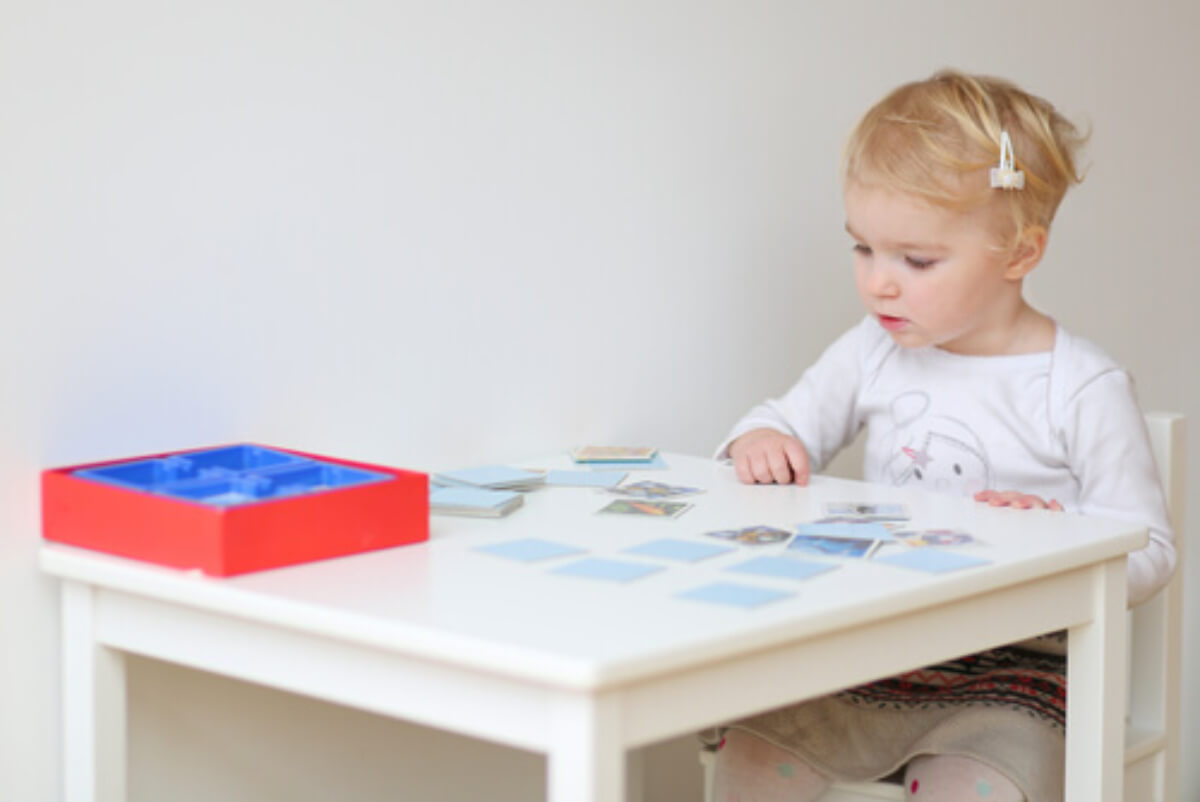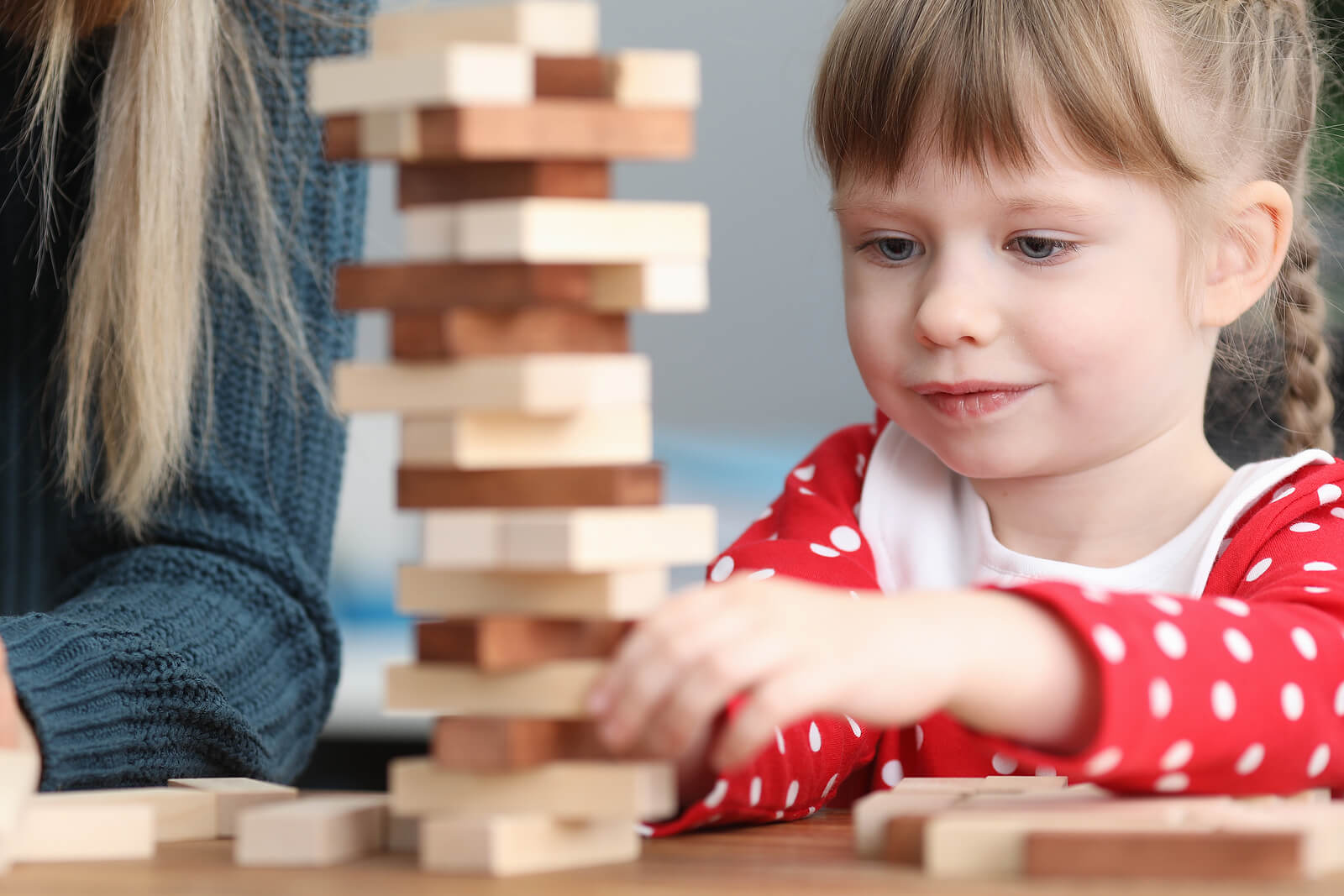11 games to promote reasoning and logic


Written and verified by the psychologist Mara Amor López
Encouraging logical thinking is essential for children to understand more abstract concepts and to develop their logical-mathematical intelligence. Therefore, in the following lines we are going to see some games to promote reasoning and logic.
Stimulating these abilities has enormous benefits for the development of the child’s intelligence. That is why parents should consider enriching these skills through activities with their children, including certain educational games with which to work on these areas.
Games to promote reasoning and logic: how is it achieved?
This type of intelligence can be enhanced in all children, but the degree of ability they reach will depend on the level they have. Like all abilities, it is necessary to work on them in order to reach adequate levels, according to their stage of development, and useful throughout their lives.

According to Piaget, logical-mathematical thinking begins with the interactions of the child and his environment, continues with the discovery of numbers and evolves towards the transition from concrete and abstract objects.
Then, he will formulate mental operations and, with his intellect, he will manage to solve problems using observation, description, differentiation and classification.
“… logical-mathematical knowledge does not exist by itself in reality (in objects), that is, it does not belong to the concrete or tangible environment of the child, but arises from his intellect, from his deductions, reflections and internalizations of the didactic-pedagogical experiences lived.”
– Pedagogist Jessica Monserrate Vélez Loor –
Using games to encourage reasoning and logic has enormous benefits:
- They increase the development of their logical-mathematical intelligence.
- They enhance thinking and reasoning.
- They help them find solutions to the different problems they encounter.
- Children will improve their ability to formulate hypotheses and predict consequences.
- It will provide guidance on what goals they want to achieve and how to achieve them.
- It provides order and meaning to the decisions or actions they take.
- Refines the ability to establish relationships between concepts, achieving a better understanding of the subject.
Now, let’s take a look at some of the games that help our children to foster their reasoning and logic, in a fun and simpler way. Read on and don’t miss it!
Games to encourage reasoning and logic
Games are a wonderful resource to help our children develop different skills. With these we are going to see below, we will encourage their reasoning skills and logic while they spend a fun time alone or playing as a family.
1. Wooden Tetris
There are wooden Tetris on the market that include 40 pieces and are very beneficial to encourage logical thinking, hand-eye coordination and imagination. This game is recommended for children ages 3 and up. It can be played at home by assembling and disassembling the colored pieces to fit them together.
2. Children’s chess, one of the games to promote reasoning and logic
Chess is the strategy game par excellence and has enormous benefits:
- Increases the development of IQ.
- Prevents Alzheimer’s disease.
- Improves memory.
- Stimulates creativity.
- Helps problem solving.
- Teaches planning and forecasting.
- Promotes concentration.
If we start employing it with the smallest of the house, the results will be enormous.
3. Dinosaurs: Mysterious Islands
This game is very useful to increase visual perception and strategic planning. The objective is to save the green dinosaurs (herbivores) from the red dinosaurs (carnivorous T-Rexes). This game is suitable for ages 5 to 99, and consists of 80 challenges ordered from lower to higher degree of difficulty, so we can play with our children while encouraging our strategy skills.
4. Crazy
Monkeys
Crazy Monkeys consists of a tree that has a large number of monkeys attached to it thanks to sticks of different colors. The objective is to remove the sticks and prevent the primates from falling to the ground. This game encourages logical thinking and strategy, as you have to think how to remove the sticks without the monkeys falling.
5. IQ link Smart Game
This game contains 120 challenges in a progressive manner. It consists of a resistant board that serves as a case to store the pieces so that they do not get lost. It motivates and develops logical thinking and, because of its size, you can take it anywhere and spend hours playing with it.
6. Temple Trap
It is a game of ingenuity that has 48 progressive challenges from lower to higher difficulty with which children can spend long hours playing while developing logic. It consists of a maze from which they have to try to get out using logical reasoning.

Tangram to encourage reasoning and logic
Tangram is a very popular game that not only works on reasoning, but is also useful for children to acquire knowledge about geometry. This game consists of various geometric shapes with which the child has to form different figures as indicated by the model.
8. Penguins on the ice
This is a game of ingenuity that also consists of 60 progressive challenges in terms of difficulty. It develops logic and spatial skills. Being small in size, it can be taken anywhere, so the child will be entertained anywhere while promoting their intellectual capacity.
9. Jenga
The construction game consists of 54 wooden blocks stacked crosswise, in threes, with 18 sections in each tower.
With skill, balance and one hand, each player has a turn to remove a piece from anywhere and place it on top. The player who causes the tower to fall loses.
10. UNO
This is a card game and is played by four to seven players. Each participant receives 7 cards and the remaining cards are stacked to be taken according to the dynamics.
To begin, a card is uncovered from the pile and each player in turn must throw a card that matches the one uncovered, either by word, color or number. If he/she does not meet these requirements, he/she must grab a card from the stock, or until one of the criteria is met.
The winner is the one who has managed to get rid of all the cards first and to announce it, shout ¡UNO!
11. Memory games
In the market there is a huge variety of memory games of varying complexity.
The resource should be used to incorporate pictorial, geographical, iconic, numerical, geometric elements; in short, any graphic aspect will become an attractive way to learn and discover.
The game can enhance the skills of attention and concentration.
The importance of play for children
UNICEF states that development and learning are holistic in nature, making play an essential tool to encourage cognitive, motor, social and emotional skills.
Through play, “children learn to forge bonds with others, and to share, negotiate and resolve conflicts, in addition to contributing to their capacity for self-affirmation”.
In short, games to promote reasoning and logic are ideal for children to have fun while stimulating these abilities. As we have already seen in the previous lines, they bring many advantages to our children and help them to further develop their cognitive skills.
So, if you do not know what to give your child, nephew, friend, etc., you can look for any of these games. Surely it will be a triumph and, in addition to amuse the children, it will be very positive for their intellectual development.
All cited sources were thoroughly reviewed by our team to ensure their quality, reliability, currency, and validity. The bibliography of this article was considered reliable and of academic or scientific accuracy.
- Aguilà, J. B. (2000). Juegos para entrenar el cerebro: desarrollo de habilidades cognitivas y sociales (Vol. 155). Narcea Ediciones.
- Ayala Salazar, D. E. (2014). Juegos de mesa para afianzar el desarrollo del pensamiento lógico, matemático durante la educación inicial (Bachelor’s thesis, Quito, 2014). https://repositorio.usfq.edu.ec/bitstream/23000/3868/1/112532.pdf
- Cardoso, E., & Cerecedo, M. T. (2008). El desarrollo de las competencias matemáticas en la primera infancia. Revista iberoamericana de educación, 47(5), 1-11. https://rieoei.org/historico/deloslectores/2652Espinosav2.pdf
- Quijije Franco, G. V., & López Espinoza, E. E. (2019). El juego como estrategia innovadora para el desarrollo del pensamiento matemático en niños de 4 a 5 años (Bachelor’s thesis). http://repositorio.unemi.edu.ec/handle/123456789/4943
- Santana, R. F. R., & Loor, J. M. V. (2022). Juegos interactivos y su importancia en el desarrollo del pensamiento lógico matemático de los estudiantes de 4 años. Revista EDUCARE-UPEL-IPB-Segunda Nueva Etapa 2.0, 26(Extraordinario), 393-417. https://revistas.investigacion-upelipb.com/index.php/educare/article/view/1694/1623
- Vera Figueroa, R. A. (2012). Aplicación de juegos para desarrollar el razonamiento matemático en los niños de la educación básica (Bachelor’s thesis, Universidad de Guayaquil. Facultad de Filosofía, Letras y Ciencias de la Educación). http://repositorio.ug.edu.ec/handle/redug/14420
This text is provided for informational purposes only and does not replace consultation with a professional. If in doubt, consult your specialist.








